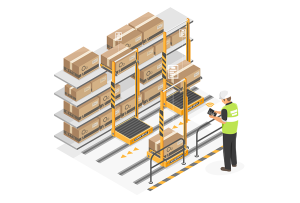 Millennials in the developed world are driving the adoption of technologies that facilitate commerce in the supply chains of the developing world.
Millennials in the developed world are driving the adoption of technologies that facilitate commerce in the supply chains of the developing world.
As developed nations mobilise their workforce and embrace new models of business, such as The Networked Economy, developing nations are benefiting from the wave of simple, streamlined and mobile solutions, for which they can thank the expectations that Millennials have of technology, says Richard Downs, Director, Solutions Marketing – EMEA, Ariba, an SAP Company, in this month’s SmartProcurement.
Millennials have grown up in the age of always-on Internet, accessed by mobile devices; they expect real-time feedback, instant communication and, in the world of work, intuitive business processes.
The huge boom in home commerce, through sites such as Amazon and eBay, has had a dramatic impact on the way we all now expect to interact with technology. And advances in Internet-based technology have brought this to the mass market.
 In our contemporary home lives we expect simple, intuitive interfaces (Amazon), guidance through complex processes (Satellite Navigation) and instant feedback when something has happened in a process we are involved with (text and Twitter alerts).
In our contemporary home lives we expect simple, intuitive interfaces (Amazon), guidance through complex processes (Satellite Navigation) and instant feedback when something has happened in a process we are involved with (text and Twitter alerts).
Traditional business software that does not interact in these ways is beginning to look antiquated.
The number of business users (making business decisions) expecting a ‘home commerce experience’ is increasing: the workforce of 2025 will be 75 per cent born-in-the-Internet-era. Millennials know no other world than one with ubiquitous Internet and portable devices, which drives a desire to work when, where, and how they want.
So there is increasing pressure on corporate IT departments to deliver technology that allows users to interact with predominantly cloud-based systems while on the move.
And it is this ‘mobility’ that is driving developing nations’ adoption of new technology.
I was recently chatting with a fellow member of The Networked Economy, which sparked the idea for this editorial, and they were talking about receiving orders on their phone, flipping invoices on a tablet, and paying people through phone transfer. However, this was not London or Atlanta; this was the manager of a mining operation in Gauteng.
While developed nations start to use mobile technology to interact with business software as a supplement to deskbound operations, developing nations are using it to operate their business in places previously thought impossible.
Interestingly, the Gauteng manager felt his business was more able to compete with the western world as necessity drove them to use our latest technology. The historical weight of corporate IT spend was not on their shoulders – they operated in a fully mobile cloud environment and saw that as a huge advantage.
Contact Ariba for more information on engaging with The Networked Economy.


























